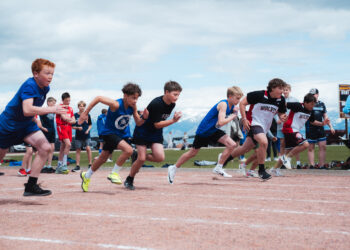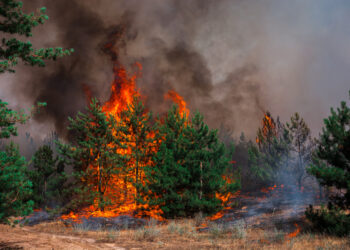By Dasha Bough Lone Peak High School
“Hot.Cool.Yours.” These were the first English words that greeted me when I arrived in
Sochi, Russia.
They are also the official slogan of the 2014 Olympics, and an accurate description of
the Russian host city. The weather during the games was, in fact, hot and cool, with
venues both on the coast of the Black Sea and high in the Caucus Mountains.
“Yours” is a new idea for Russia, one that promises generosity and a shared experience.
In Russian, the theme “Hot.Cool.Yours.” (translated as Жаркие.Зимние.Твои.) seems
oddly literal and slightly out of place. In English, however, the words are a play on
a clever double meaning. The fact that the Russians chose a slogan popularized in
America could indicate their desire to embrace a more global culture.
On my way home to Montana, I reflected on this detail while sitting on a plane, reading
article after article of negative American press about the Sochi Olympics. I couldn’t help
but grit my teeth a little as I skimmed over the complaints about unfinished landscaping
and lack of hot water in the hotels. I was saddened by the negative way in which the
Sochi Olympic experience was portrayed.
I ask you to open your mind and allow me to take you on a journey beneath the surface
created by the media. I believe you will see a country proud of its history and how far it’s
come, and one that, while certainly not perfect, is anxious to share its deep culture with
the rest of the world.
I took this journey as I learned about the main character of the Opening Ceremonies,
Lyubov, whose name literally means “love.” A young Russian girl, she shared with the
world her dreams of Russia’s past, beginning with its unique alphabet and ending with its
strong tradition of fairy tales.
In between, her dreams took us through St. Petersburg’s Imperial heritage, a violent
revolution, Communism, its demise and the struggle to rebuild a country, including the
rebuilding of Sochi for these Olympics.
Her dreams were filled with all things Russian: music, literature, ballet, circus athletes
and art. The presentation was cheerful, lively and full of love, a theme in these Olympics
that I first discovered in the Olympic Park, where young, enthusiastic volunteers dressed
in colorful coats sang out in thick accents as we passed by.
One of them, Nadya, was an 18-year-old law student at Sochi State University and a
new friend of mine. Nadya worked as a guide at the Olympics, and we met the day of
our arrival. Although her parents are Georgian, Nadya has lived in Sochi her entire life,
and proudly calls herself a local.
“Five years ago, we did not have a single shopping arcade,” Nadya told me in broken
English. “Now we have five.”
Her answer changed as we became better acquainted. Speaking in Russian, she told
me more about her town and the changes President Vladimir Putin has made.
“There has been a new energy in this region because of the Olympics, and with it a pride
in our environment,” she said. “I am more proud than ever to be Russian at this time.
People always talk about St. Petersburg and Moscow as if they are Russia. But Russia
is a huge country, and we are all a part of it.”
__________
Having spent five years of my childhood living in Russia, I shared Nadya’s optimism
about Sochi, its people and the Olympics. But what about an American who has never
been to Russia before?
Bozeman native and Olympic freestyle moguls skier Heather McPhie said she loved the
Sochi venue for many reasons, including that the Olympic village was easy to navigate
and that it placed her out of her element.
“Competing in Vancouver felt like competing at home, [and] this is more of a foreign
feeling,” she said two days after her final run, when I met her at the USA House in
Olympic Park.
Known for attempting more complicated, challenging jumps than most of the other
women competitors, McPhie attempted aggressive tricks and placed 14 out of 26. While
pushing the limits in her sport has brought her success, it may have hurt her score in
Sochi.
But given another chance, McPhie said she would do the same thing.
“It is so important to do what you believe in,” she said. “It enables you to live a
passionate life. I have absolutely no regrets about my performance [and] decisions. One
of my main goals has always been to … push the boundaries of the sport.”
With an open and positive demeanor, McPhie’s energy leaves no room for negativity.
Perhaps this is the reason why she has become a world-class athlete in such a
competitive event.
__________
2010 figure skating gold medalist Evan Lysacek also knows something about positivity.
The first American man in 24 years to win gold in figure skating, Lysacek was training to
compete in Sochi until he was injured in December.
“It’s hard to be here watching and wishing that I was competing,” he said while attending
the figure skating team event. “At the same time, I’m not only an Olympic athlete, I’m
also an Olympic fan, so I would not have missed the Games for the world.”
As an athlete who watched the Olympics his whole life, Lysacek said he didn’t fully grasp
the power of the Games until attending his first Olympics in 2006, in Torino, Italy.
“What makes it truly unique is the global reach. Other events are important locally or
nationally, but the Olympics grabs the fascination of the entire world.”
Lysacek is familiar with Russia. He trained and competed there three times in the
buildup to his Vancouver gold medal, and believes that training was crucial to his
success.
Lysacek said he was not disappointed with the hospitality at the 2014 Games. “They
have played tremendous hosts to the world and built this Olympics around the athletes,”
he said.
Russia put a record $51 billion into the Olympics, and hosted roughly 3,000 athletes.
As for the elite athletes in his sport, Lysacek says it’s a tight knit group composed of
people from around the world.
“I have grown up competing with nearly the same group of skaters for the last 15 years,”
he said. “It gave me the opportunity to meet and get to know a very diverse group of
people from a young age. I have lifelong friends from so many countries… We keep in
touch and will always share the Olympic experience.”
__________
I won’t pretend everything at Sochi was perfect. It’s true we didn’t have hot water in our
hotel for a couple of days, a handle fell off my closet door one morning, and we spent a
lot of time walking through construction projects.
Nevertheless, the mountains and ocean around Sochi are stunning, and the people are
open and friendly.
I would also guess that many of the logistical issues Americans at the Olympics are
complaining about are due to the language barrier. But did Americans in Salt Lake City
speak Russian to those competitors visiting our country?
We are each unique and must not only accept our differences, but perhaps begin to
celebrate them as well.
Dasha Bough is a freshman at Lone Peak High School in Big Sky.












